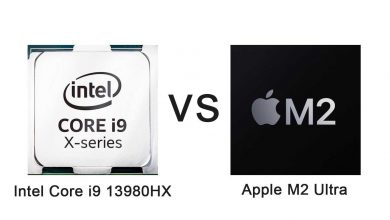How to upgrade CPUs of your Laptops

How to upgrade CPUs of your Laptops – Laptops, a dominant force in the computing world, serve as indispensable tools for students, professionals, artists, and business individuals. As these versatile devices age, a common woe emerges—sluggishness.
While reviving performance through RAM and SSD upgrades is a known solution, the question that often looms is whether a laptop’s CPU can undergo a similar transformation. Imagine the impact of elevating from a core i3 to a core i5 or i7.
So, is upgrading a laptop’s CPU a viable option?
This guide explores this frequently asked question. Initially, we’ll scrutinize the motives behind considering a CPU upgrade for laptops, followed by an investigation into the feasibility of such an endeavor.
The Imperative of Upgrading a Laptop’s CPU
Laptops stand out as remarkable computing devices, blending extreme portability with commendable performance. There’s a cohort of individuals who’ve never owned a desktop computer, thanks to laptops manufacturers who have made laptop to be accessible to everyone and not just for businesspeople
Performance, whether in desktops or laptops, inevitably experiences fluctuations over time. This can be attributed to advancing software demands or aging hardware. Users often contemplate upgrading their machines when confronted with a noticeable decline in performance, a practice common among both desktop and laptop users.
For desktop users, the upgrade process is quite straightforward—they can easily enhance their CPU, GPU, RAM, Hard Disk (SSD), or Power Supply, enjoying the perks of DIY PC building.
However, the landscape shifts when it comes to laptops.
Can You Upgrade a Laptop’s CPU?

The straightforward answer is no, but the nuanced response is that it depends. Let’s delve deeper into this.
In desktop computers, swapping out a CPU is a seamless process of replacing the old CPU with a new, pin-compatible (same socket support) one. Why not apply the same logic to laptops? Well, the feasibility depends on the laptop manufacturer’s support.
In slightly older laptops, CPUs aren’t soldered onto the motherboard; they reside in a socket, akin to desktop motherboards. If your laptop aligns with this architecture, there’s potential for a CPU upgrade. Simply look for a compatible CPU and embark on the replacement journey.
When we say “supported CPU,” we refer to a socket-compatible CPU from the same manufacturer. For instance, if your laptop houses a Core i3, it could potentially be replaced with a socket-compatible Core i7 CPU.
Some laptop manufacturers furnish lists of compatible CPUs for specific laptop models. However, BIOS compatibility poses a hurdle, as some manufacturers lock their BIOS to a specific CPU, thwarting any upgrade attempts, even with a socketed CPU.
This scenario is more applicable to slightly older laptops. What about the latest models? Modern laptops present an even greater challenge. In most contemporary laptops, manufacturers solder the CPU directly onto the motherboard.
Consequently, replacing or upgrading the CPU in modern laptops becomes practically unfeasible. If laptop manufacturers designed laptops with CPU upgradability in mind, users could inject new life into their devices by installing a newer CPU a couple of years after the initial release.
This approach would extend the lifespan of electronic devices, potentially reducing the volume of e-waste. The logistics of electronic device recycling remain somewhat opaque, but the inability to upgrade a laptop’s CPU appears to contribute to the growing e-waste issue.
Enhancing Laptop Performance Without CPU Upgrades

Are aging laptops destined for obsolescence once they experience a performance dip? Not entirely. While upgrading a laptop’s CPU or GPU proves challenging—nearly impossible, in fact—there are key components that users can consider upgrading: RAM, Hard Disk, and occasionally, the Wireless Card.
To economize, laptop manufacturers often opt to install a single RAM stick, even when the motherboard accommodates two RAM slots. Users, usually unconcerned about the RAM configuration, receive laptops at a slightly reduced price. If this resonates with your laptop, adding a second RAM stick is highly recommended. This upgrade yields a substantial performance boost as the CPU maximizes its dual-channel RAM capabilities.
Another potential RAM upgrade involves replacing it with faster RAM. Yes, if your laptop’s motherboard supports higher-speed RAM than the existing one, consider making the upgrade.
A concerning trend observed is the soldering of RAM onto laptop motherboards. To any laptop manufacturer or associated personnel reading this, a plea is made to reconsider this practice.
Regarding hard disks, modern laptops typically come equipped with SSD storage. In this context, upgrading to a faster SSD, such as a PCIe SSD instead of a SATA SSD, promises a remarkable improvement in the laptop’s performance.
Lastly, the Wi-Fi card deserves attention. If your laptop harbors a slower Wi-Fi module, such as a Wi-Fi AC Card, contemplate upgrading to a Wi-Fi AX Card for enhanced connectivity speeds.
MacBook Considerations – How to upgrade CPUs of your Laptops
For MacBook owners, the upgrade path is straightforward. Apple opts for soldered components, including the CPU, RAM, and SSD, rendering upgrades impractical. The advice here is either invest in a fully spec’d model during purchase or opt for a new device when the time comes.
Last Words
Laptops have secured a prominent position as mainstream computing devices globally. Modern laptops boast impressive performance figures, even for resource-intensive tasks, all while retaining the invaluable trait of portability.
A common query from laptop owners is, “Can You Upgrade a Laptop’s CPU?” The answer, disappointingly, is no for relatively modern laptops. However, this guide has not only addressed this limitation but also explored alternative upgrade options, such as RAM, SSD, and Wi-Fi card enhancements, offering a potential lifeline to aging laptops seeking a performance boost.



